News
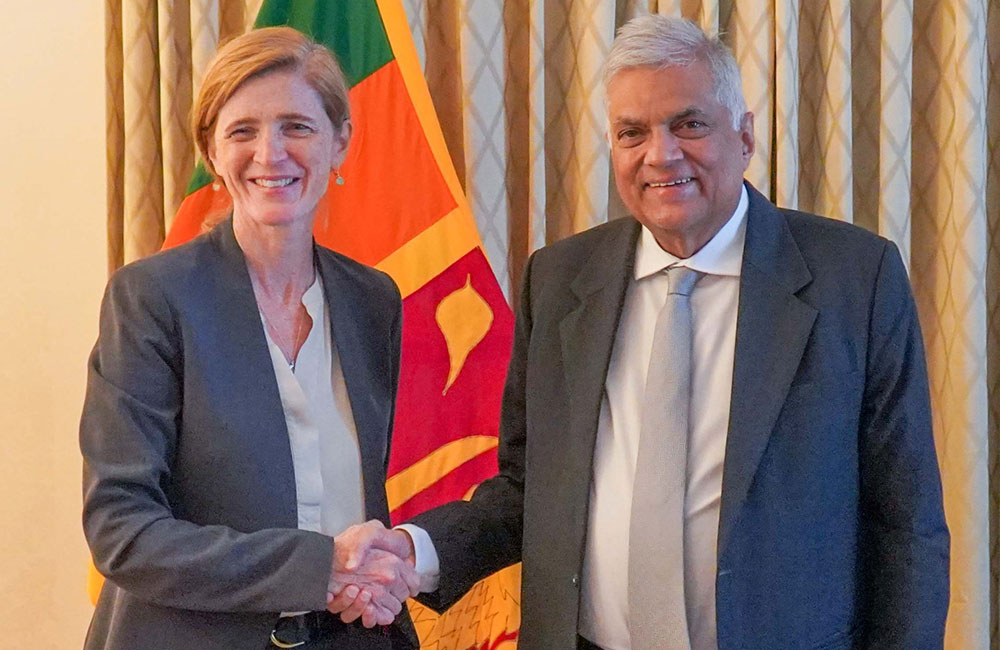
USAID will continue to support Sri Lanka’s recovery, Samantha Power assures President
President Ranil Wickremesinghe met with USAID Administrator, Samantha Power, on the sidelines of the UN General Assembly in New York.
During the discussions the President expressed his appreciation for the support extended by the United States Agency for International Development (USAID) to Sri Lanka during the financial crisis.
The President presented a short briefing on the progress with the IMF program, while highlighting the Government’s commitment to its successful conclusion, the statement said.
The efforts made by the Sri Lankan Government in improving the efficiency and effectiveness of the welfare programs through the introduction of the ‘Aswesuma’ initiative were illustrated during the meeting.
Samantha Power stated that USAID would continue to support Sri Lanka’s recovery efforts, while also making available necessary expertise.
Regarding the developments following the enactment of the anti-corruption legislation, President Ranil Wickremesinghe noted that the Anti-Corruption Commission is currently grappling with the task of recruiting staff with formal training.
Given this circumstance, it is anticipated that it will require an additional year to realize the anticipated outcomes of the anti-corruption law adoption, making the timeline for achievement approximately two years.
The President stated that the entire government machinery of his government has been fully adapted to the implementation of the anti-corruption policy, and requested for the necessary support to be provided for the completion of these activities as soon as possible.
PMD
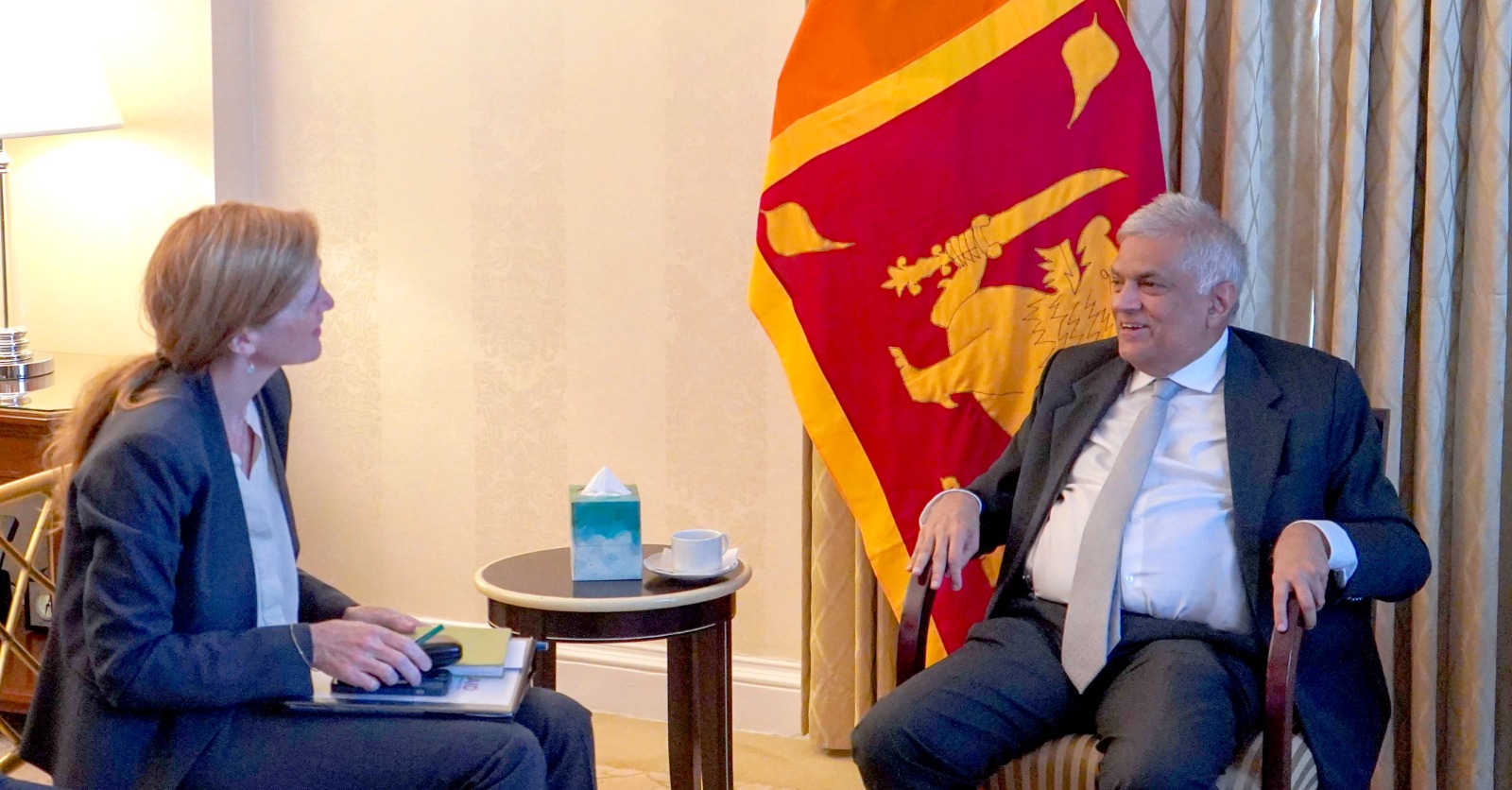
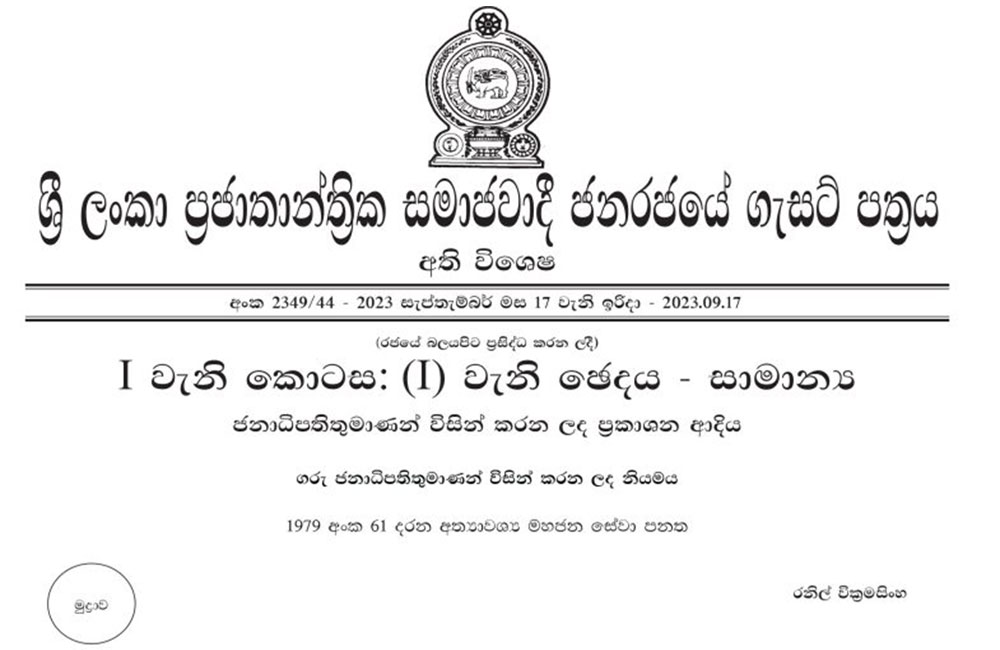
Three key sectors declared as essential services
A Gazette notification has been issued declaring the electricity, petroleum, and health sectors as essential services in Sri Lanka.
The Gazette has been issued by the Acting Secretary to the President dated September 17, 2023.
As per the Gazette notification, all services related to the supply of electricity, the supply or distribution of petroleum products and fuel, and all services, work, or labour required for the maintenance, care, feeding, and treatment of patients in hospitals, nursing homes, dispensaries, and similar healthcare institutions are now declared as essential services.
Gazette : http://documents.gov.lk/files/egz/2023/9/2349-44_E.pdf
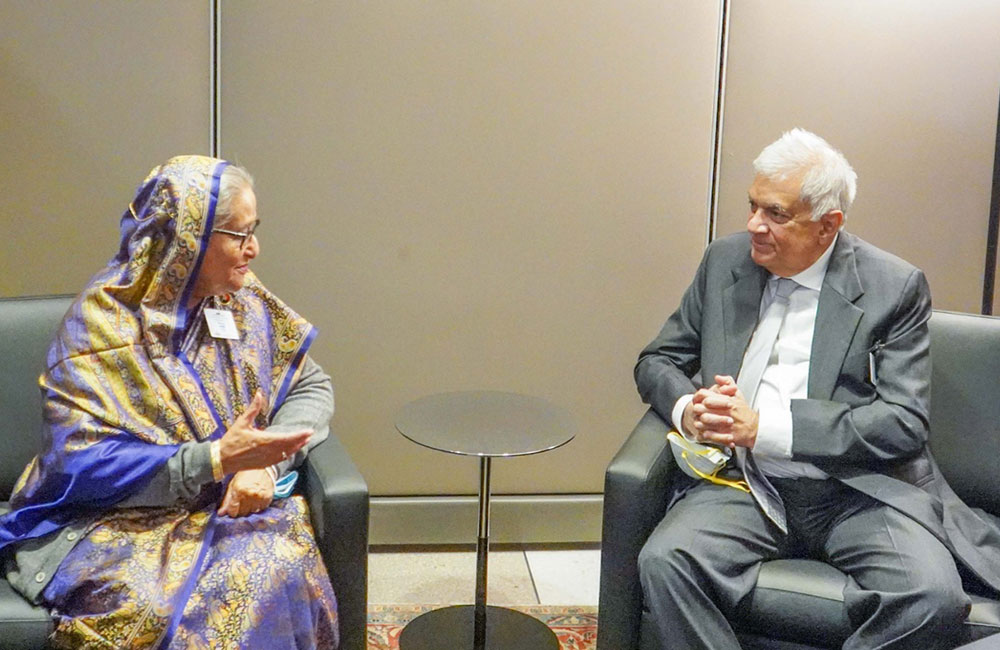
Bangladesh did not expect Sri Lanka to pay back the loan so fast
In a significant diplomatic meeting, President Ranil Wickremesinghe held a fruitful meeting with the Prime Minister of Bangladesh, Sheikh Hasina, in New York yesterday (19).
The meeting cantered on various aspects of bilateral relations and cooperation between the two South Asian nations.
Prime Minister Sheikh Hasina informed President Wickremesinghe that she was pleased with Sri Lanka’s speedy recovery from the financial crisis, adding that she had not expected Sri Lanka to pay back the loan so fast.
During the discussions, President Wickremesinghe extended his heartfelt gratitude to Prime Minister Sheikh Hasina and the people of Bangladesh for their unwavering support and assistance to Sri Lanka during challenging times.
He acknowledged the assistance received by Sri Lanka and expressed his profound appreciation for Bangladesh’s generosity. President Wickremesinghe, in a gracious gesture, also apologized for not being able to visit Bangladesh in the past due to various commitments and circumstances. He affirmed his desire to strengthen the ties between the two countries and proposed the possibility of visiting Bangladesh in November or December, aligning with the convenience of the Bangladeshi government.
In a more personal exchange, Prime Minister Sheikh Hasina shared the tragic history of her family, recounting the devastating assassinations that had befallen her loved ones. The cordial conversation between the two leaders allowed for a deeper understanding of each other’s experiences and aspirations. (PMD)
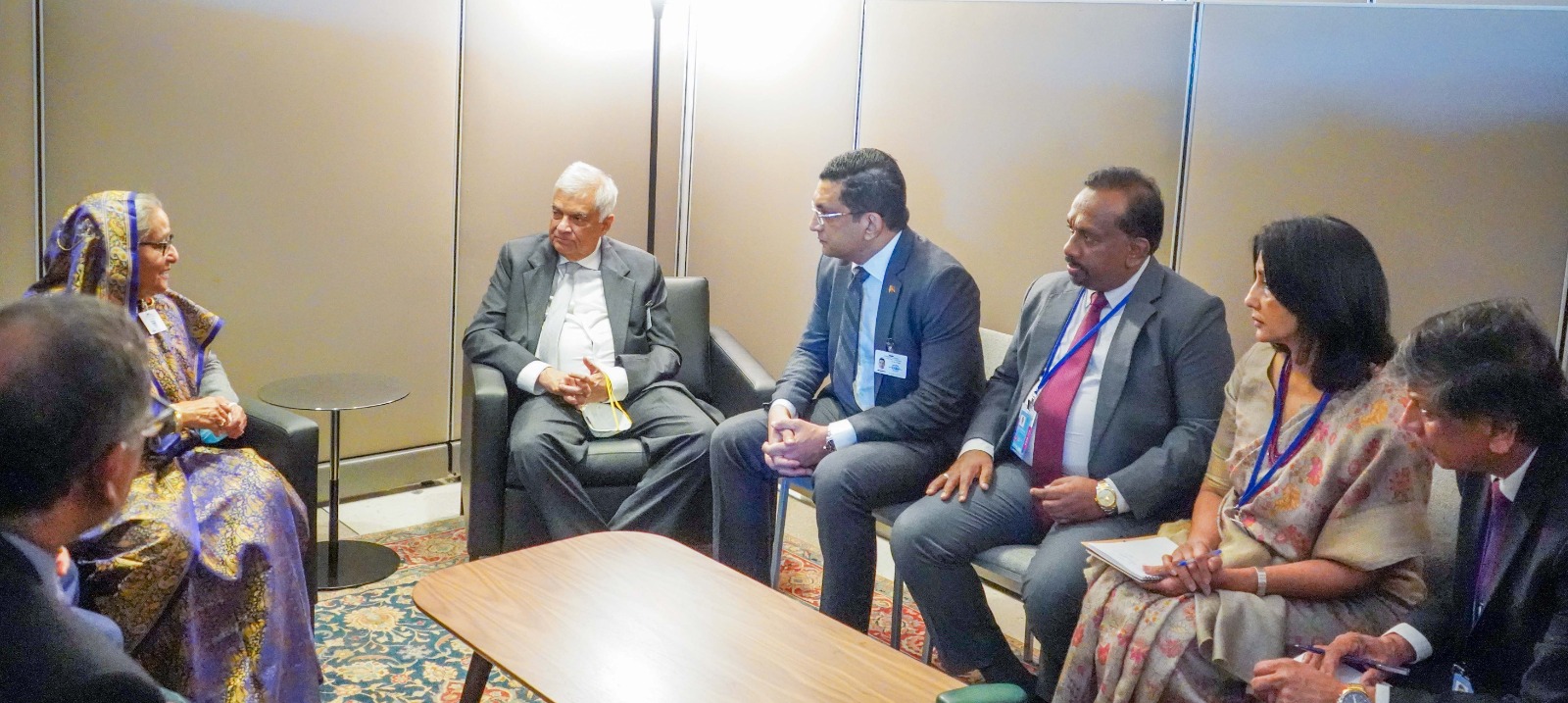
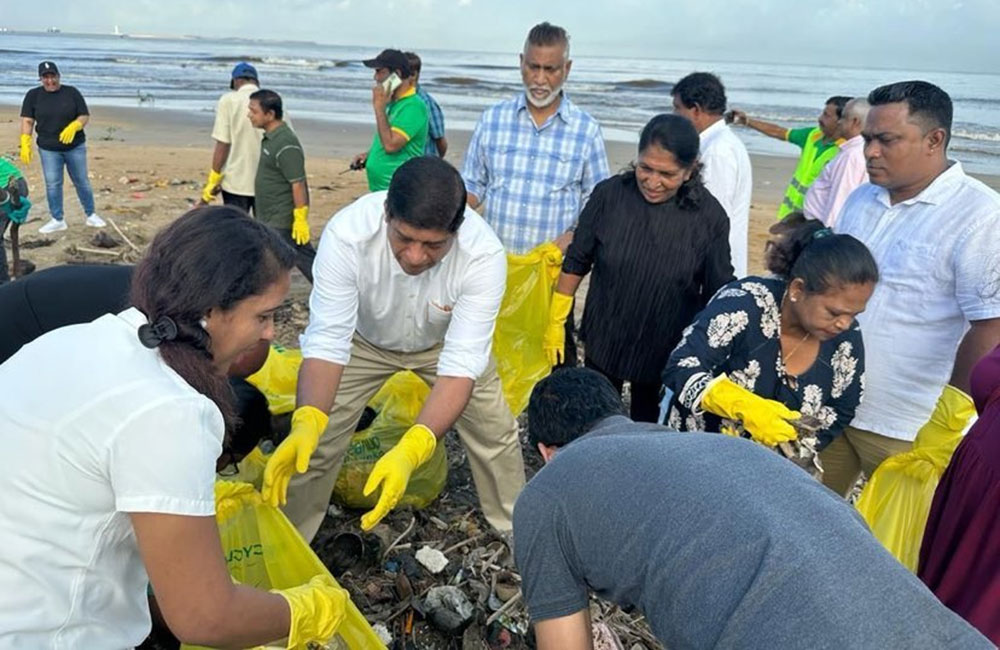
President has support of around 200 MPs – Ravi K.
Set aside politics and unite in order to solve issues of the people, UNP Colombo district leader Ravi Karunanayake has stressed to all.
What should actually happen is not to introduce anti-corruption or any other acts, but proof by deed, he said, highlighting that no act would be meaningless without being practical.
Karunanayake was addressing as chief guest a beach cleaning effort at Crow Island in Mattakkuliya to mark international coastal cleanup day, organized by Lion’s Club International, Navy, police and schoolchildren.
Speaking further, he said foreign media channels need not explain anything to Sri Lanka, and that none of these issues would have arisen had the investigations so far into the Easter Sunday attacks been conducted properly.
Instead of leveling accusations against president Ranil Wickremesinghe, the opposition should extend him support for the sake of the country and the people, he said.
None of those accusers came forward to accept the responsibility for the country at the difficult moment, he said.
“Time has come to halt the politics of deception. There is talk only with no proof by deed anywhere.”
Around 200 out of the 225 MPs are with the president, and the opposition is left with about 25 MPs, Karunanayake claimed.
It is not the politicians, but the people who face problems, which needs action by all, including the media, for their resolution, he added.
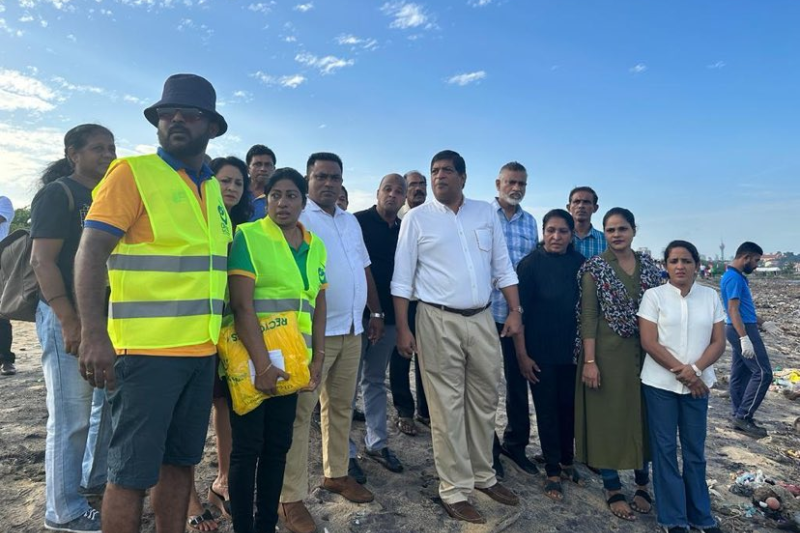
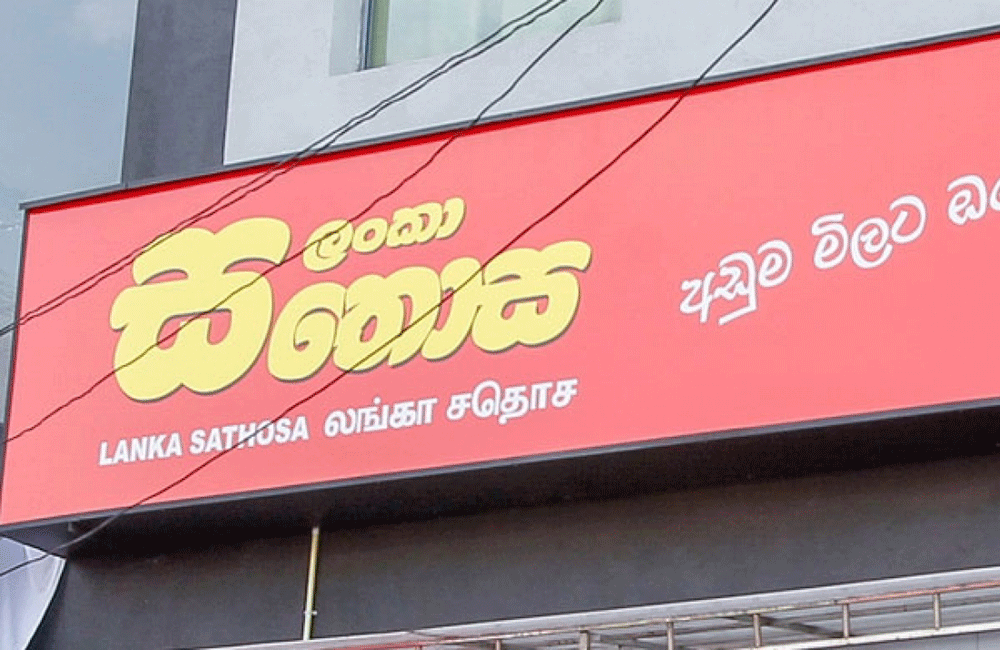
Lanka Sathosa reduces prices of 06 essential food items
Lanka Sathosa, on Wednesday (20 Sep.), reduced the prices of six essential food items.
Issuing a release, the state-owned corporation stated that the relevant price reduction will be in effect from today.
Accordingly, the prices of the following goods have been reduced:
• Soya meat - Rs.580 per kilogram (reduced by Rs.45)
• Local Potatoes - Rs.290 per kilogram (reduced by Rs.40)
• Thai sprats - Rs.1,100 per kilogram (reduced by Rs.30)
• Garlic – Rs.620 per kilogram (reduced by Rs.30)
• Big onions – Rs.195 per kilogram (reduced by Rs.15)
• Red lentils – Rs. 299 per kilogram (reduced by Rs.06)
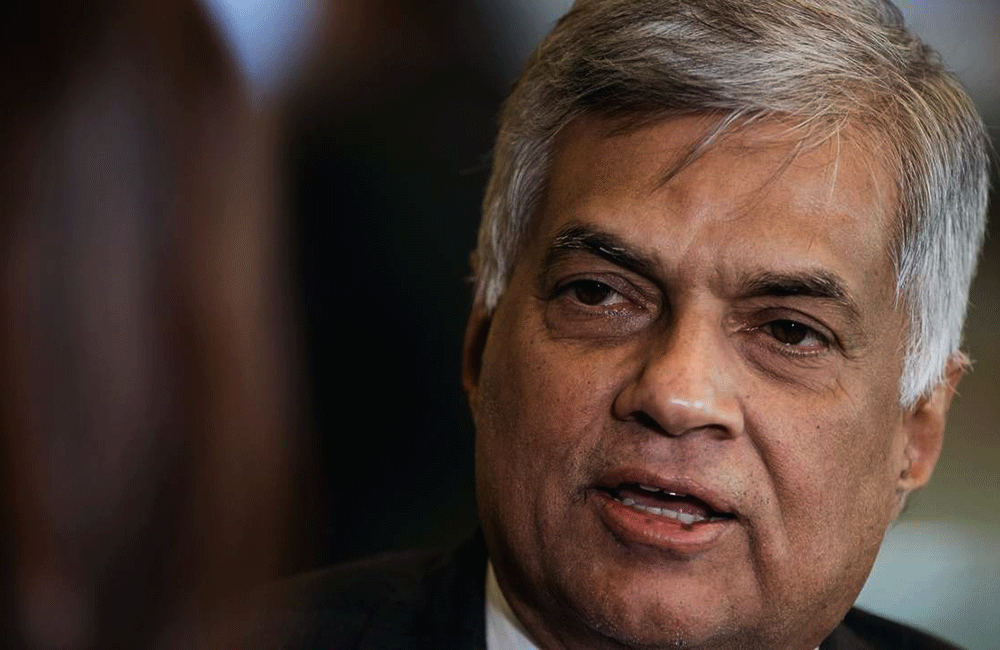
President arrives in New York for UNGA
Following his participation in the “G77 and China” Summit in Cuba, President Ranil Wickremesinghe arrived in New York earlier today, to attend the 78th session of the United Nations General Assembly in the United States of America.
This session, themed “Rebuilding trust and reigniting global solidarity: Accelerating action on the 2030 Agenda and its Sustainable Development Goals towards peace, prosperity, progress and sustainability for all” is scheduled to take place from September 18 to 21.
President Ranil Wickremesinghe is slated to address the session on September 21, where he will deliver a special speech. Furthermore, the President will actively participate in the 2023 Sustainable Development Goals Summit, where global leaders will outline strategies for transformative and accelerated actions towards 2030.
Additionally, President Ranil Wickremesinghe has been invited to deliver the keynote speech at the Indo-Pacific Island Dialogue for Maritime Nations. In parallel, he has scheduled bilateral discussions with several state leaders participating in the conference.
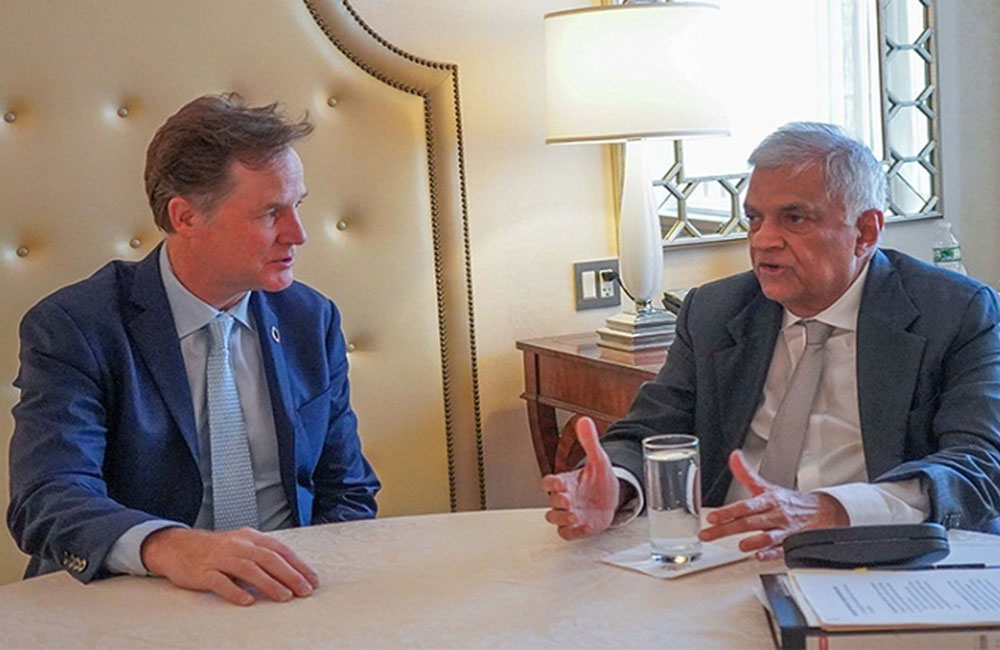
President meets Facebook (META), discuss two initiatives
President Ranil Wickremesinghe met with Sir Nick Clegg, President of Global Affairs for Meta, in New York on the side-lines of the United Nations General Assembly (UNGA).
During their discussions, President Wickremesinghe highlighted the government’s new initiatives to combat online hate speech and the spread of fake news. He emphasized that the proposed bill would allow concerned parties to challenge specific aspects through the Supreme Court and further revisions could be considered during the Parliamentary Committee review.
The President was briefed on Meta’s advancements in Artificial Intelligence, with a particular emphasis on open-source technologies.
Both parties explored potential collaborations between the Sri Lankan Government and Meta in the field of Artificial Intelligence (AI). One of the proposals discussed was the development of a collaborative program between Meta and Sri Lankan universities aimed at advancing AI technology.
President Wickremesinghe emphasized his two primary areas of focus: fostering the growth of the AI sector in the country, especially in the realm of education and utilizing AI to support data-driven initiatives aimed at addressing climate change. (PMD)
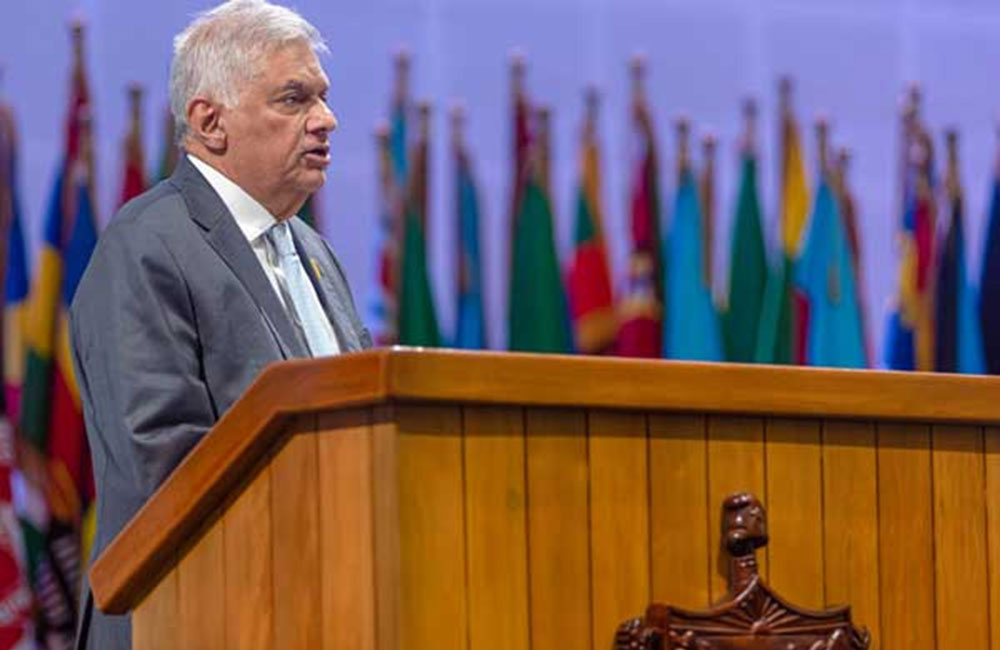
President Ranil Wickremesinghe Addresses G77 & China Summit in Cuba
President Ranil Wickremesinghe delivered a compelling address at the Summit of the Heads of State and Government of the G77 & China in Havana, Cuba yesterday (15). In his speech, President Wickremesinghe emphasized the crucial role of science, technology and innovation in overcoming the current development challenges faced by developing nations worldwide.
President Wickremesinghe began by commending Cuban President Miguel Diaz-Canel Bermudez for convening the summit and acknowledging Cuba’s historic role as a champion for the concerns and aspirations of developing nations within various multilateral forums.
He noted the unprecedented challenges confronting the global South, including the pandemic, climate change, food, fertilizer and energy crises, which threaten the achievement of Sustainable Development Goals (SDGs) and exacerbate the global debt crisis.
President Wickremesinghe then delved into the historical perspective of technological development, highlighting how Europe’s advancements in the 15th century, such as gunpowder, cannons and ocean-going ships, enabled it to conquer other parts of the world, resulting in the technological divide seen today. He underscored that a new technological divide is emerging in the 21st century, necessitating the adoption of digitalization and new technologies, such as Big Data, IoT, AI, Blockchain, Biotechnology and Genome Sequencing, to bridge the gap.
He emphasised the importance of an educated manpower well equipped with knowledge and technological know-how essential for the smooth flow of the needed transformations which will lubricate the development and catching up process in developing nations.
The President outlined his government’s initiatives, including the evaluation of underperforming Science and Technology Research Institutes and the establishment of a Technology and Innovation Council and a Digital Transformation Agency. Additionally, Sri Lanka plans to create four new universities specializing in new technologies, with one being the result of technological cooperation between India and Sri Lanka. The International Climate University will be the 05th.
Addressing the digital divide, President Wickremesinghe cited challenges such as limited access to costly technology, insufficient digital skills and infrastructure, cultural and institutional barriers and financing constraints.
He called for effective cooperation mechanisms within the G77 and China, including the revitalization of the Consortium of Science & Technology & Innovation for the South (COSTIS) and the commitment of member countries to earmark 1% of their GDP for R&D over a decade.
President Wickremesinghe stressed the importance of collaboration between governments and the private sector and proposed creating technological platforms in fields like digitalization, health, medication, AI and renewable energy including green hydrogen, inspired by the European Union’s Technology & Innovation Platforms.
The brain drain from the South to the North and the resulting loss of educated manpower is another threat to the development of Science Technology and Innovation of the South, President Wickremesinghe said, adding that China, India, Japan and South Korea have developed Science Technology and Innovation by nurturing their manpower. “Therefore we must ask for compensation from the North for the loss of our manpower,” he added.
He also urged increased South-South cooperation and proposed a scheme akin to the Colombo Plan to enhance collaboration, exchange best practices and develop policies that harness the transformational potential of science, technology and innovation.
In conclusion, President Wickremesinghe reaffirmed Sri Lanka’s commitment to supporting the new Havana Declaration and called for the collective voice of G77 and China to be heard in international fora.
The President’s address underscored the significance of science, technology and innovation in shaping the future of developing nations, making it a pivotal moment at the G77 and China Summit.
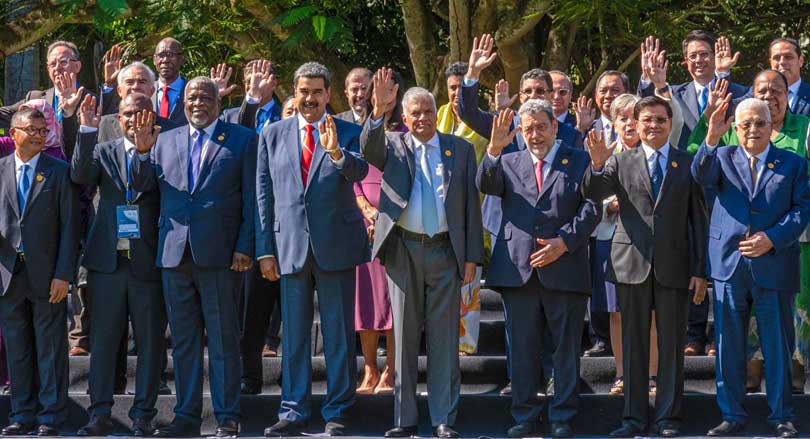

President joins business roundtable during 78th UNGA session
In conjunction with the 78th session of the United Nations General Assembly (UNGA), President Ranil Wickremesinghe actively participated in two significant events in New York, the President’s Media Division (PMD) reported.
President Wickremesinghe took part in a high-profile business roundtable discussion titled “Economic Opportunities in Sri Lanka”, jointly organised by the Business Council for International Understanding and the Embassy of Sri Lanka in the United States of America, which took place yesterday (18 Sep.).
The business roundtable saw participation from more than 40 U.S. businesses keen on exploring investment and trade prospects in Sri Lanka.
Alongside them were prominent representatives from Sri Lanka’s private sector and a delegation of senior officials from the United States government. This discussion aimed to foster economic opportunities and strengthen bilateral relations between the two nations.
Meanwhile, President Wickremesinghe also participated in the “Conference on Sustainable Development Goals – 2023,” which commenced yesterday at the UN Headquarters, focusing on exploring new strategies to advance progress toward achieving sustainable development goals by 2030.
Ruwan Wijewardena, President’s Senior Adviser on Climate Change, Saman Ekanayake, Secretary to the President and Aruni Wijewardena, Secretary of the Ministry of Foreign Affairs, were also present on this occasion.
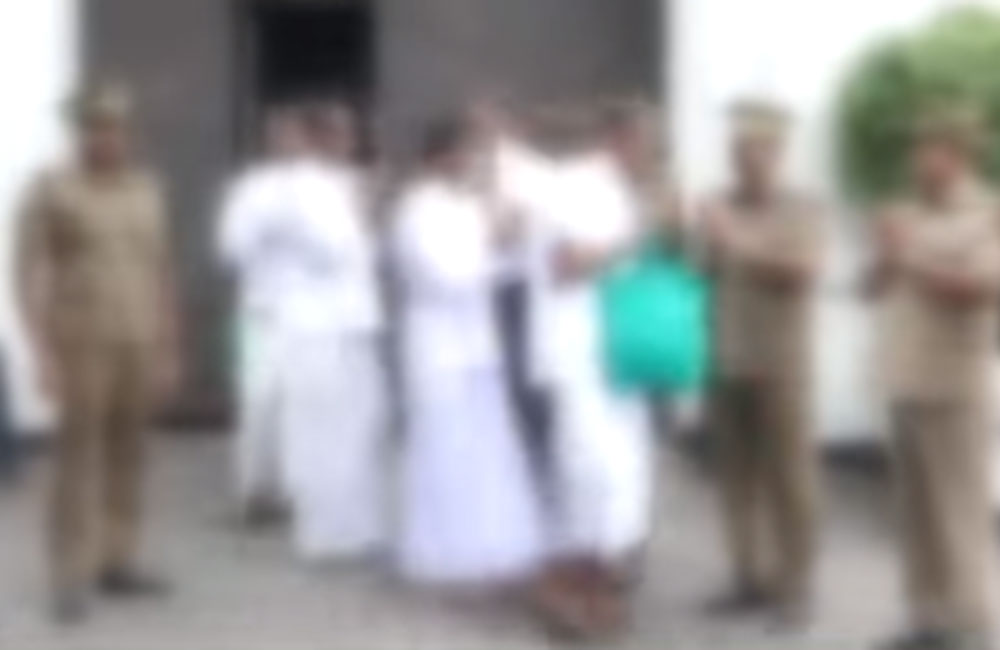
Over 900 Sri Lankan prisoners get Presidential Pardon
933 prisoners have been given a Presidential Pardon.
The Department of Prisons in a statement said that 926 male convicts, and 7 female convicts were thus given Presidential Pardons to coincide with the the 25th National Prisoners' Day.
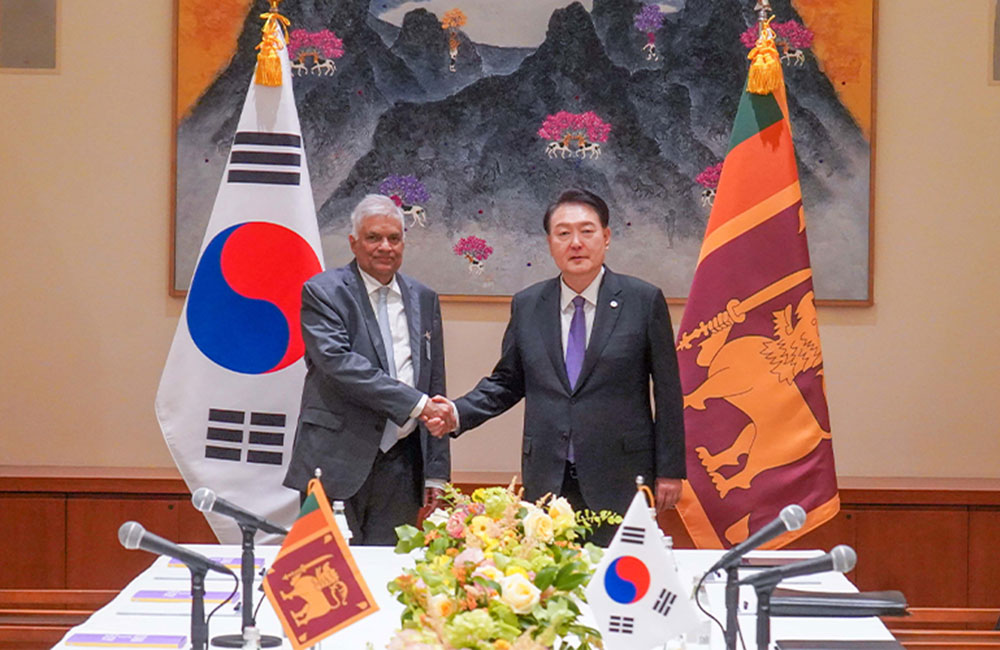
Sri Lanka & South Korean leaders discuss key issues
South Korean President Yoon Suk Yeol pledged his support for President Ranil Wickremesinghe’s economic recovery plan for Sri Lanka.
He praised President Wickremesinghe’s program aimed at alleviating the severe economic crisis in the country and commended his dedication.
Additionally, President Yoon Suk Yeol mentioned the potential for expanding the scope for job opportunities in South Korea for Sri Lankan youth in the future.
The South Korean leader lauded President Wickremesinghe’s efforts to address Climate Change issues based on the COP 27 agenda and proposed for Sri Lanka and Korea to enter into a Bilateral Climate Change Agreement. He further proposed the need to expedite the conclusion of a Bilateral Trade and Investment Agreement with a view to facilitating more Korean investment bringing in new technology to Sri Lanka.
The official meeting between Presidents Wickremesinghe and President Yoon Suk Yeol occurred alongside the 78th session of the United Nations General Assembly at the South Korean Permanent Resident Mission to the United Nations in New York. The leaders discussed the strengthening of diplomatic relations that began in 1978 and explored opportunities for further expansion.
President Wickremesinghe emphasized the importance of expeditiously finalizing a trade agreement between the two nations. Both leaders prioritized enhancing trade and investment relations between Sri Lanka and South Korea. Additionally, President Yoon Suk Yeol expressed gratitude for the valuable contributions of Sri Lankan youths working in South Korea to the country’s economy.
Furthermore, the South Korean President highlighted that Sri Lankan workers who have gained skills in South Korea will return to contribute to Sri Lanka’s economy positively. He also applauded the commitment of the Sri Lankan President to address climate change.
President Ranil Wickremesinghe emphasized Sri Lanka’s digitalization efforts, while the South Korean President noted that Sri Lanka can draw valuable lessons from South Korea’s remarkable achievements in digitization.
In a friendly gesture, President Yoon Suk Yeol extended an invitation to President Ranil Wickremesinghe for an official visit to South Korea in the near future.
Foreign Minister Ali Sabry, Secretary to the President Saman Ekanayake, Foreign Secretary Aruni Wijewardane and other senior officials from Sri Lanka and Korea participated in the meeting. (PMD)
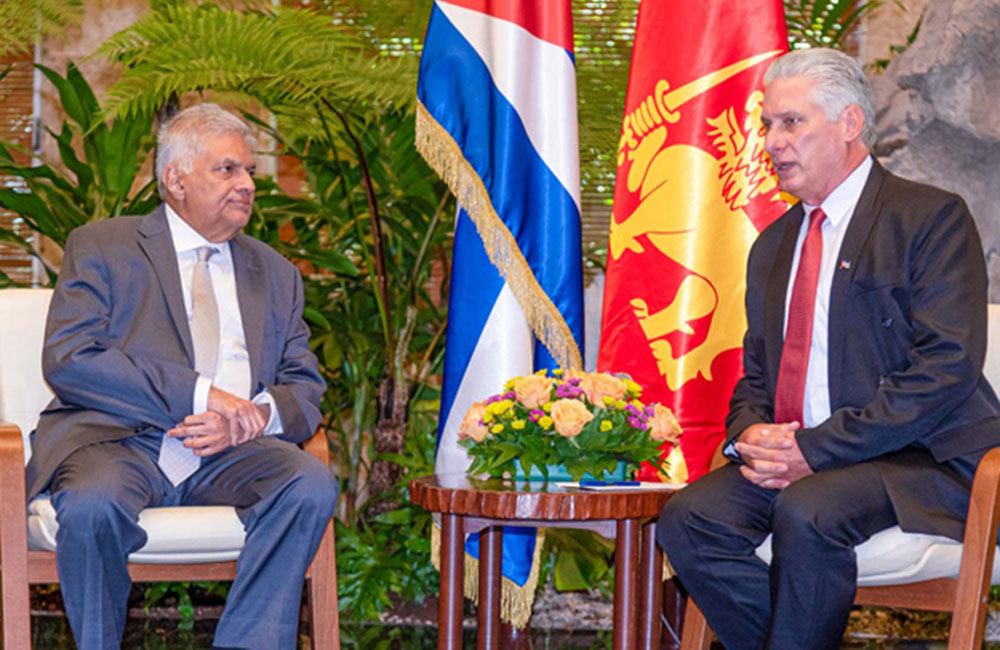
President meets Cuban Counterpart for bilateral talks
President Ranil Wickremesinghe engaged in bilateral discussions with Cuban President Miguel Díaz-Canel Bermudez, reinforcing the bonds of friendship and dialogue between the two nations.
The President who is currently in Cuba, engaged in the discussion ahead of his participation in the G77 plus China Summit in Havana on September 15-16, hosted by Cuba as the current Chair of the G77 plus China.
According to the President’s Media Division (PMD), during his visit, President Wickremesinghe’s arrival in Cuba was marked by a warm welcome, as he received a Guard of Honour at the Palace of Revolution.
President Díaz-Canel Bermudez expressed Cuba’s appreciation for the visit, emphasising its significance during these challenging times globally. He praised Sri Lanka’s commitment to friendship with Cuba and to the vital role played by the G77 and China in representing the global South.
In their discussions, President Wickremesinghe recalled the history of bilateral cooperation between Sri Lanka and Cuba, particularly in multilateral forums. Both nations have supported each other on issues like lifting sanctions against Cuba and human rights matters. They identified areas of future cooperation, including public health, agriculture and sports.
President Díaz-Canel accepted President Wickremesinghe’s invitation to visit Sri Lanka in 2024, underscoring Cuba’s continued support for Sri Lanka. He also highlighted Cuba’s role in addressing North-South gaps in Science, Technology and Innovation, expressing willingness to share expertise, particularly in vaccine development.
The two leaders emphasised the importance of bolstering the relationship between their countries, focusing on collaboration in medicine, healthcare, sports training and coconut cultivation. President Wickremesinghe expressed Sri Lanka’s commitment to supporting Cuba in international forums, while President Díaz-Canel assured support for Sri Lanka regarding human rights resolutions.
The PMD stated that this meeting represents a significant step forward in strengthening diplomatic ties between Sri Lanka and Cuba, with far-reaching implications for both nations and the broader global community.
President Wickremesinghe was accompanied by key officials, including Secretary of Foreign Affairs Ms. Aruni Wijewardane, the Ambassador of Sri Lanka to Cuba Lakshitha Ratnayake, the Director General of the United Nations and Multilateral Affairs Division of the Ministry of Foreign Affairs, Rekha Gunasekera and Private Secretary to the President Sandra Perera.
Page 248 of 681